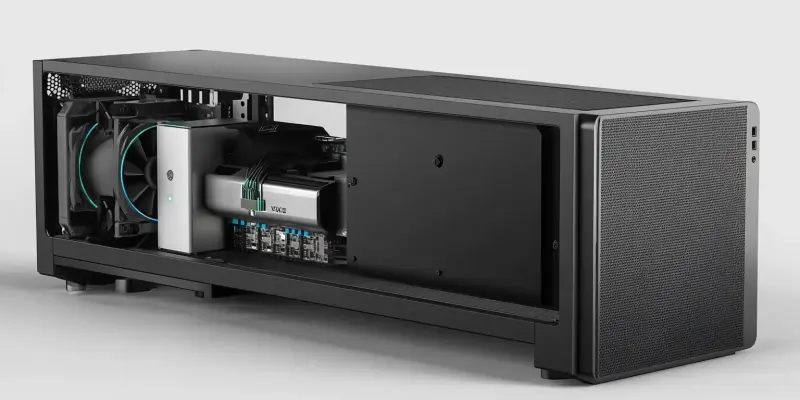The ever-increasing pace of technological advancement has led to an alarming amount of electronic waste (e-waste), significantly impacting the environment. With over 60 million tons of e-waste produced annually, and only a mere 12% being actively recycled, the problem requires urgent solutions. The computing industry contributes approximately 70% of this e-waste, amounting to an estimated $65 billion in recoverable materials. In response, Intel is pioneering a shift towards modular PC designs in an effort to mitigate this environmental threat. By promoting the ‘right-to-repair’ philosophy, they aim to extend the lifespan of devices through easy upgrades and component replacements, potentially alleviating a substantial portion of the e-waste burden.
The Right-to-Repair Movement and Modular Design
Intel’s vision for a more sustainable future in technology revolves around the concept of modularity, which is also at the core of the growing ‘right-to-repair’ movement. This approach is centered on manufacturing computing devices that are both easily repairable and upgradable, thereby reducing the need for consumers to replace entire systems frequently. By endowing their products with modular architectures, Intel is making strides toward enabling users at various levels—factory, field, and end-user—to carry out repairs and upgrades effectively. This substantial increase in reparability aims to curtail the generation of waste, which is crucial considering the vast amount of e-waste stemming from outdated computing hardware.
The practical applications of modular design vary across factory, field, and user levels. Factory modularity primarily deals with customizations during manufacturing, effectively lowering costs and minimizing environmental footprints from the outset. Skilled technicians in the field can employ field modularity to perform substantial upgrades and repairs outside of factory settings, adding an intermediate layer that balances cost and sustainability. User modularity, however, stands out by empowering end-users to manage basic component upgrades like RAM and storage themselves. This democratization of hardware maintenance holds the potential to significantly reduce total system replacements, lowering e-waste and promoting more eco-friendly consumption patterns.
Impacts and Advantages Across Market Levels
The potential impact of modular PCs is profound across various market segments, including Premium, Entry-level/Mainstream, and Desktop Modular Architectures. For premium devices, a three-board system emphasizing standardized components like M.2 SSDs and motherboards can facilitate easier and more cost-effective upgrades and repairs. This seamless interchangeability of parts ensures that high-end users, such as content creators, can enjoy up-to-date technology without contributing to e-waste. Similarly, the Entry/Mainstream segment can benefit from replaceable I/O boards, WiFi modules, and SSDs, allowing for simpler and frequent updates to keep pace with evolving technology demands.
In the Desktop Modular Architecture arena, the approach extends to making components such as CPUs, SODIMM Memory, and GPUs easily replaceable. This modularization could cater particularly well to Premium Creator and Entry-Level workstations, where performance upgrades are often required. Perhaps one of the most innovative aspects is the future potential for replacing common elements like USB Type-C ports through modular PCBs, signifying a flexible and forward-thinking design ethos. By making repairs and upgrades more accessible, Intel indirectly encourages a longer lifecycle for computing devices. Users are empowered to update individual components without investing in an entirely new system, fostering a mindset of sustainability and reducing environmental impact.
A Shift Towards Sustainable Consumption
The rapid pace of technological progress has resulted in an overwhelming amount of electronic waste (e-waste), posing significant environmental challenges. Each year, over 60 million tons of e-waste are generated globally, yet only around 12% of this is recycled. This issue demands urgent attention, particularly since the computing industry is responsible for roughly 70% of this waste. This industry alone accounts for an estimated $65 billion in recoverable materials that often go unutilized. In an effort to combat this growing threat, Intel is pioneering a transition to modular PC designs. This initiative supports the ‘right-to-repair’ movement by making it easier to upgrade and replace components, thus extending the lifespan of devices. By promoting this philosophy, Intel hopes to significantly reduce the volume of e-waste. This approach not only addresses environmental concerns but also maximizes resource use, potentially easing a substantial part of the e-waste problem and fostering a more sustainable future.

